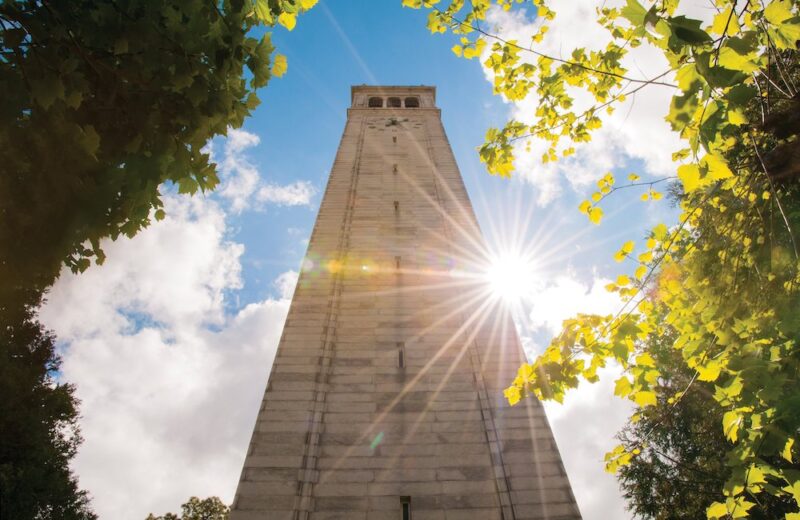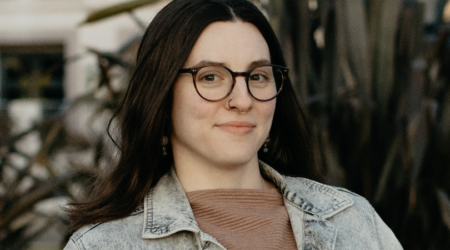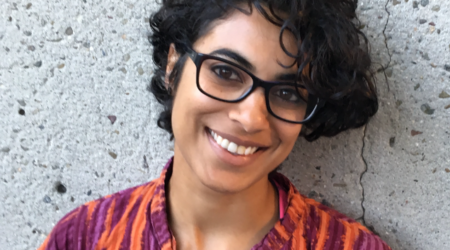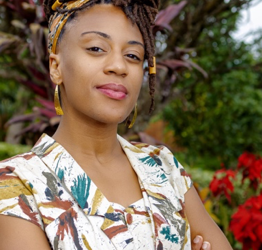Social Science Matrix is excited to welcome five new Matrix Research Teams for the 2023-2024 academic year. Matrix Research Teams are groups of scholars who gather regularly to explore or develop a novel question or emerging field in the social sciences. The teams convene participants from multiple disciplines and focus on research questions with real-world significance; they are designed to encourage collaboration among graduate students, provide professional development, and create opportunities for faculty engagement and mentorship.
This year’s funded teams — one faculty-led team and four graduate student-led teams — will address a diverse range of social science questions, including understanding the effects of the US military presence on the Marianas archipelago; examining the influence of Frantz Fanon on scholarship about decolonization, anti-colonialism, and liberation; researching the infrastructural projects built by prisoners in the United States; investigating the legacies of Black campus members at UC Berkeley since the university’s founding; and examining the processes through which cities in Latin America have been constructed and imagined.
“These teams are doing phenomenal work,” said Marion Fourcade, Director of Social Science Matrix and Professor of Sociology. “They are both crafting innovative research agendas and fostering community with fellow scholars from across campus. We are so proud to host and fund them.”
Matrix Research Teams are chosen following review by a cross-disciplinary panel of faculty members. Faculty-led teams receive $5000 in funding and hold regular meetings focused on a defined research problem, with a goal to apply for one or more grants for continued research. The student-led teams will receive up to $1500 to explore a new area or question of inquiry, in part to assess whether it has potential for further investigation.
In addition to funding, all Matrix Research Teams receive support in coordinating, scheduling, and reserving space for meetings and events. Matrix also provides communications support to help publicize each group’s work, as well as assistance with identifying and applying for further funding. Below are summaries describing the 2023-2024 Matrix Research Teams, based on the teams’ proposals.
Faculty-Led Research Teams
Marianas Critical Research Initiative
Organizer: Clancy Wilmott, Assistant Professor in Critical Cartography, Geovisualisation, and Design in the Berkeley Centre for New Media and the Department of Geography
Over the past two decades, US military plans for the Marianas archipelago (mandatorily released to the public in compliance with the National Environmental Policy Act) have detailed enormous infrastructure expansions that risk contaminating the islands’ soil, drinking water, and fragile coral reef ecosystems. Critics of these plans also point out that proposed training ranges promise to physically destroy sacred cultural sites, damage the archipelago’s tourism-based economy, and increase travel and shipping costs by restricting air and sea space during training exercises. Local non-profit organizations, lawyers, environmental scientists, politicians, artists, and activists have responded to these perceived threats to their health, environment, culture, and way of life with a barrage of protests, lawsuits, and appeals to the US federal government and United Nations.
The Marianas Critical Research Initiative (MCRI) is a diverse coalition of UC Berkeley faculty and graduate students interested in examining the detrimental effects that US military presence has had on environmental and human health in the Marianas from WWII to the present. With heritage and familial ties across the Pacific, the MCRI team is dedicated to achieving and bolstering understanding of this under-studied conflict, taking an interdisciplinary approach to the topic by integrating critical military studies, security studies, political ecology, geography, indigenous studies, public health, veteran studies, and questions of sovereignty and colonialism in US territories.
Student-Led Research Teams
The Afterlives of Fanon Research Collective
Organizers: Adam Hasan, Graduate Student, UC Berkeley Department of Geography, Black Geographies Collective; Sibahle Ndwayana, UC Berkeley Department of Geography, Black Geographies Collective
Anticolonial intellectual and activist Frantz Fanon’s influences have inspired the work of liberation movements worldwide and continue to generate robust cross-disciplinary debate by scholars across the humanities, social sciences, and medical fields. The Afterlives of Fanon Research Collective aims to provide an institutional home for graduate scholarship on decolonization, anti-colonialism, and liberation at Berkeley and the broader Bay Area, providing a space to think with Fanon’s work and its afterlives through an interdisciplinary geographic lens. We aim to understand Fanon’s contributions in relation to the realities he faced and, most importantly, fold them in with other intellectuals and activists’ contexts, i.e., trying to understand his work in relation to our realities. Using analytical frameworks from interdisciplinary fields, including Black geographies, postcolonial studies, gender studies, and medical anthropology, the Collective grounds our thinking, writing, and practice in concrete historical and geographic contexts where Fanon’s work has been taken up and stretched in new directions. In a world increasingly defined by violent hostility to historically marginalized communities and people, the urgent relevance of Fanon’s work on liberation extends beyond the confines of the academy. To this end, the Collective fosters conversations that cross not only disciplinary boundaries but also the boundaries of the academy itself. The Collective’s goals include four primary programmatic areas: a year-long, bi-weekly graduate student reading group; a one time faculty colloquium guest talk; a second-semester graduate working paper series with the intended goal of an edited volume; and a public-facing film series curated in collaboration with BAMPFA.
Carceral Labor Mapping Project
Organizers: Elizabeth Hargrett, PhD Candidate, Department of History; Xander Lenc, PhD Candidate, Department of Geography
The American landscape has been profoundly shaped by the labor and toil of incarcerated workers, but most of us pass by the highways, dams, forests, parks, and other landforms they built without any inkling of their carceral origins. There is no central database for the tens of thousands of infrastructural projects built by prisoners in the United States, and despite a wealth of disparate scholarship on prison and jail labor there is no collaborative platform for historians, geographers, sociologists, and other scholars of the prison to circulate their findings. The Carceral Labor Mapping Project (CLMP, or “Clamp”) aims to foster collaboration between carceral scholars and provide pedagogical tools for educators seeking to demystify the carceral landscape. The team will produce an online GIS platform allowing users to not only learn about the role that carceral labor programs have played in shaping the world around them, but also allowing them to collaborate on carceral research projects.
Black Lives at Cal Initiative
Organizers: Caleb Dawson, PhD candidate, Critical Studies of Race, Class, and Gender, Berkeley School of Education; Nitoshia Ford, PhD student, Department of African American Studies; Kevin Steward, JD Candidate, Berkeley Law School; Bria Suggs, graduate student, UC Berkeley School of Journalism
Black Lives at Cal (BLAC) is a long-awaited initiative to celebrate, defend, and advance the legacy of Black students, faculty, staff, and alumni at the University of California Berkeley. As a multi-year research endeavor, BLAC investigates the lived experiences, struggles, and accomplishments of Black campus members (BCM) since the university’s founding with balanced attention to individuals, informal collectives, organizations, and campus units. Yet BLAC is more than a research endeavor. BLAC is dedicated to developing novel ways to preserve and publicize these legacies such as a website and interactive visuals (e.g. timeline, maps, exhibits). Our commitment to celebrating, defending, and advancing our legacy of Black life-making follows from and extends the three characteristics of Black Studies put forward by Manning Marable – to be descriptive, corrective, and prescriptive. First, we believe that a detailed description of the legacy of the Black campus community in the face of institutional disdain, disrespect, and neglect lends itself to a celebration. Second, we are all too familiar with what the Black Women Collective critiques as the academy’s impetus to erase, misrepresent, and generally appropriate our legacies of Black (women’s) cultural production in service of white supremacist capitalist patriarchy, so BLAC offers a corrective to those majoritarian histories in defense of our interests and self-definition. Finally, we believe that careful engagement with the past and present can prescribe, or inform, how we relate to the future in such a way that cultivates our advancement.
Latin American Cities
Organizers: Isabel Peñaranda Currie, PhD Student, City and Regional Planning, UC Berkeley; Flavia Leite, PhD Student, City and Regional Planning, UC Berkeley; Laura Belik, PhD Candidate, Architecture, UC Berkeley.
With over 80% of its population living in urban centers, Latin America is the most urbanized region in the world. Yet even within a single city, the continent’s urban contexts provide an infinite diversity of realities that have been understood through a spectrum of ideas, movements, and constructions. The Latin American Cities (LAC) Working Group was created to examine the complex transdisciplinary processes through which cities in the continent have been constructed and imagined, and explore the challenges they face in the current age. Our goal is to reflect on the urban context in Latin America through various integrative lenses and approaches of research. How can we understand Latin America’s regionality? While we recognize the common historical, cultural, political and economic connections between the different territories and countries, this group also aims to challenge the totalizing approach towards urban theory and planning. In order to do so, we will try to understand the representations of the urban form found in various works across diverse fields of study, giving a more textured account of how the city is lived and imagined through distinct analytic lenses. We aim to bring together interdisciplinary perspectives to deepen our understanding of urban spaces and urban cultures throughout Latin America, as well as to broaden the dialogue between Latin America and other regions in the Global South.



